
Power and Prayer
In early 2020, before the first lockdown, I was at a comedy club, with a couple of good friends.
One of the comedians performing that night was from Malawi. He joked that he needed to go back home to see what a stable government looked like!
The Malawian government is not known for its stability, whereas the UK, ordinarily, is.
Back then, Brexit had thrown UK politics into disarray. Nearly 3 years on, he could make the same joke, and it would work just as well. With two resignations, from our prime ministers, less than 6 months apart, our government seems no more stable now.
We all long for good leadership, especially in challenging times. Sadly, though, we often seem unable to rely on those in power.
In England, there is a new piece of legislation going through the Houses of Parliament that will impact home-educators. It will make it a legal requirement for home-educators to register with their local authority, giving more power to local authorities.
Once passed in England, it is likely that Wales will follow suit.
On the one hand, it could be a good thing. Tragically, there are some who use the pretext of home-education to hide abuse. But, for most home-educators, who do it to try and provide the best for their children, registration is a bit daunting.
As long as the local authorities use their new powers wisely, and with understanding and integrity, there ought to be nothing to fear.
However, as we well know, power in the wrong hands, can often lead to unstable and distressing consequences.
Is there anything we can do? Not just home-educators, but all of us concerned about the leaders of this world, our country and our local authorities?
Yes, there is. We can pray.
Proverbs 21 :1 says:
“A king’s heart is like streams of water in the Lord’s hand: He directs it wherever He chooses.”
All those in power are, ultimately, directed by God.
This is clear throughout the stories of the Bible where God hardens the hearts of some leaders and softens the hearts of others.
For example, the Egyptian Pharaoh’s heart was hardened against Moses, in Exodus (Exodus 9:12). But God still freed his captive people and revealed his glory and power – internationally – through the events that played out.
In Ezra, we read of a Persian King, who, seemingly out of nowhere, decreed that the exiled Jewish people could go back to their land and rebuild their temple (Ezra 1:2).
What, or who, influenced their thinking?
It was God. He directs the hearts of leaders, as easily as a child might channel a stream of water from a rock pool at the beach.
Amazingly, God does not choose to do this alone. He invites us to join him in this, through our prayers.
I wonder what would happen, if we prayed for our leaders as often as we criticised them? (And I say this as much to myself as anyone else who might need to hear it.) Our words are very powerful, we can use them to spread gossip and stir up discontentedness, or we can direct them in prayer and ask God to stir the hearts of our leaders, leading them to make good and wise choices.
There may be other actions that need to be taken too: letters, petitions, the exposing of unsavoury truths. But real change begins in a person’s heart – our leaders’ and our own – which is why our prayers are so important. Only God can truly change the heart of a man or woman.
First of all, then, let us make supplications, prayers, intercessions, and thanksgivings for all people in authority, for Kings and all who are in high positions, that we may lead peaceful and quiet lives, godly and dignified in every way. This is good, and it is pleasing in the sight of God our Saviour. (1 Timothy 2:1-3)
Second, let us not be anxious about anything, but in everything by prayer and supplication with thanksgiving let our requests be made known to God. And the peace of God, which surpasses all understanding, will guard our hearts and our minds in Christ Jesus. (Philippians 4:6-7)
A Good King
In our curriculum, Layers of Learning, we have been learning about the legends of King Arthur.
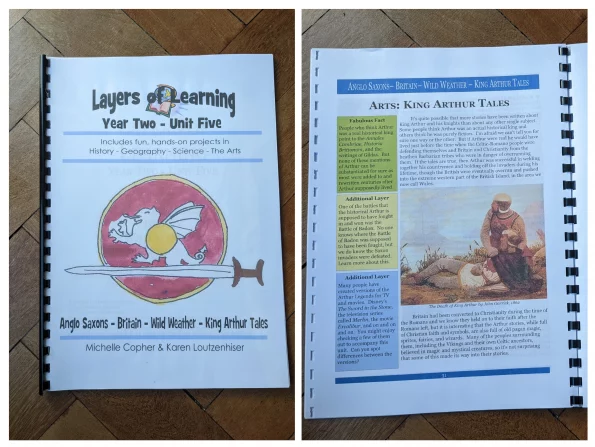
We have looked at a few different books, and each seems to have a slightly different variation of the myth.
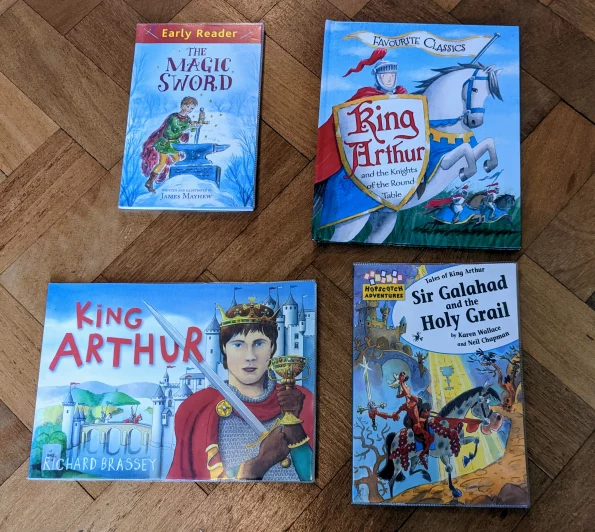
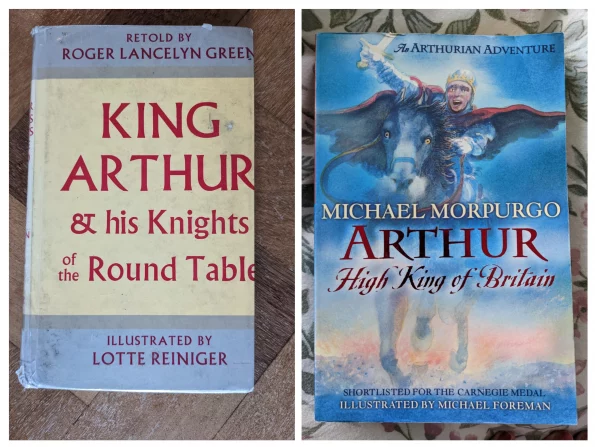
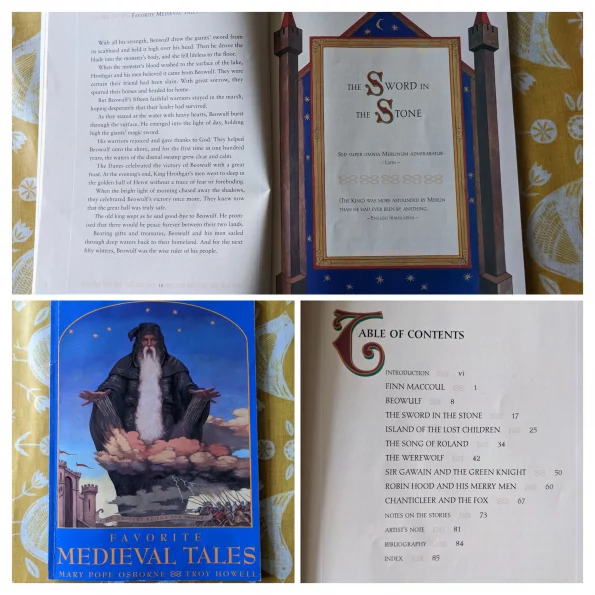
We particularly like the books by Marcia Williams, which retell ancient myths in a comic strip style. So we were very pleased to find a copy of the King Arthur one, at our local library.
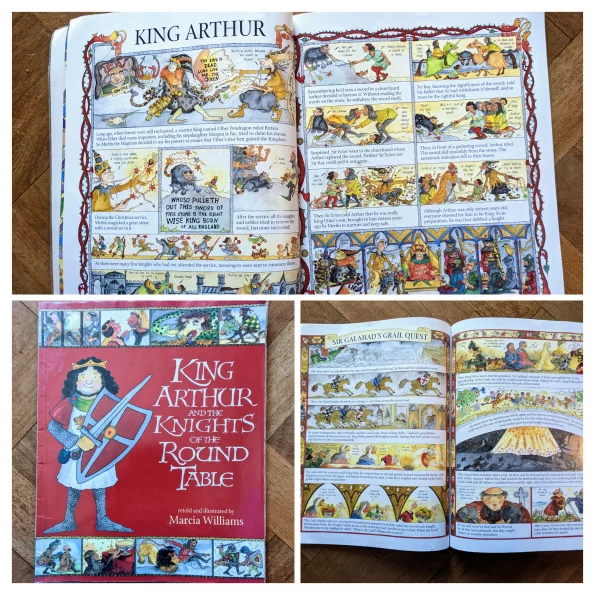
We also used this resource from twinkl, as a comprehension activity.
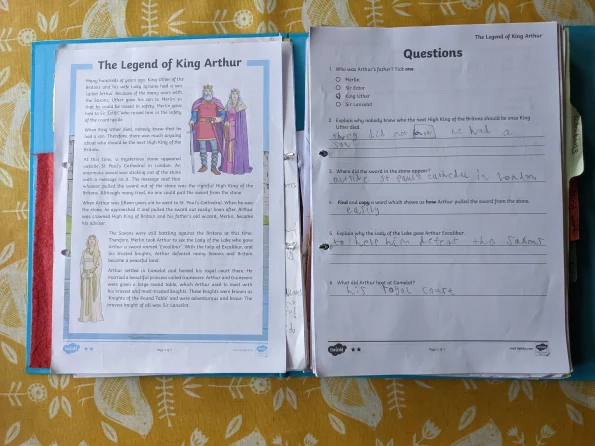
And we watched the old Disney movie, The Sword in the Stone.
Then we made models from foam clay, of the various characters in the legends.
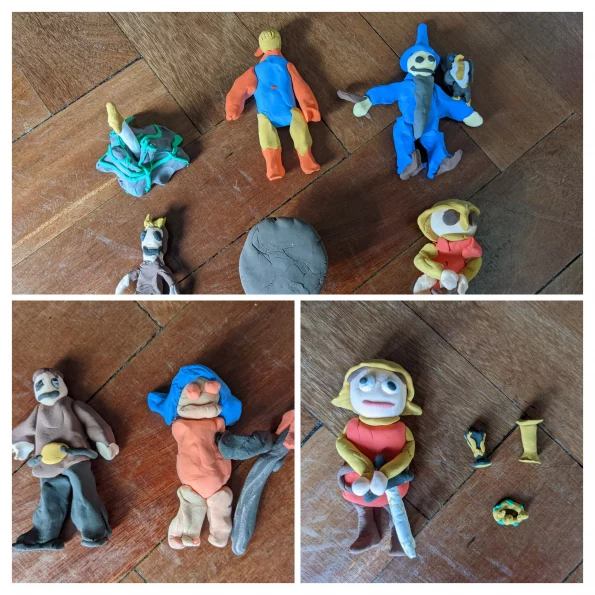
Once dry, the children decided to try their hand at making their own King Arthur animation. Here is what they came up with.
I’m not sure they’ll be winning a Grammy, but it’s not bad for a first attempt! It also coincides nicely with the film festival happening in Newport over the next 2 weeks.
Finally, we took a trip to Glastonbury to visit the children’s grandfather and explore some of the places linked to King Arthur there. Unfortunately, because the company and food were so good, and we had so much fun getting blasted in the wind on top of the Tor, we managed to miss the last entry to Glastonbury Abbey (which is 3:15pm in case you decide to go).
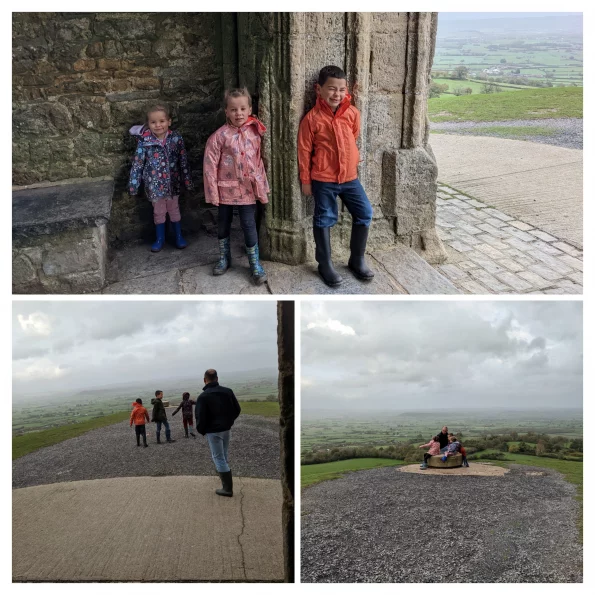
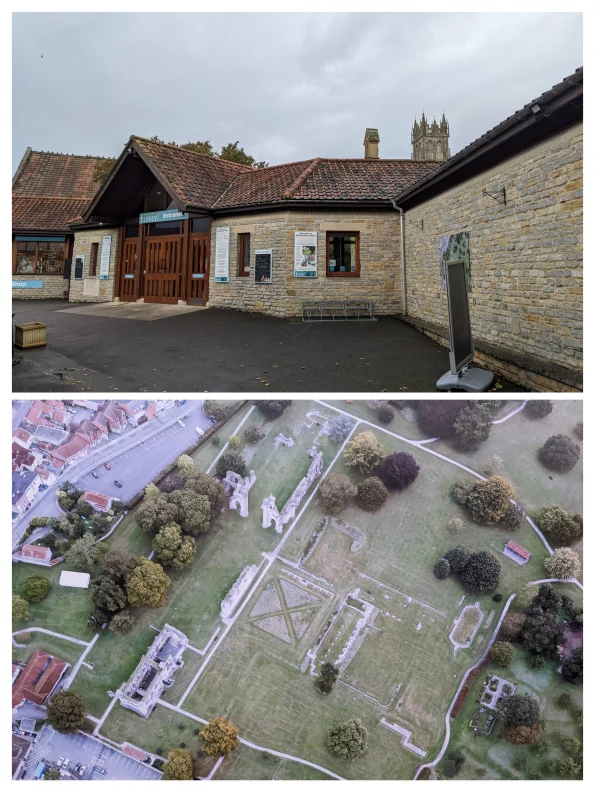
Never mind, we’ll be back soon, no doubt, to check out the supposed burial place of King Arthur himself. At least we got to enjoy the interesting models in Grandpa’s house.
